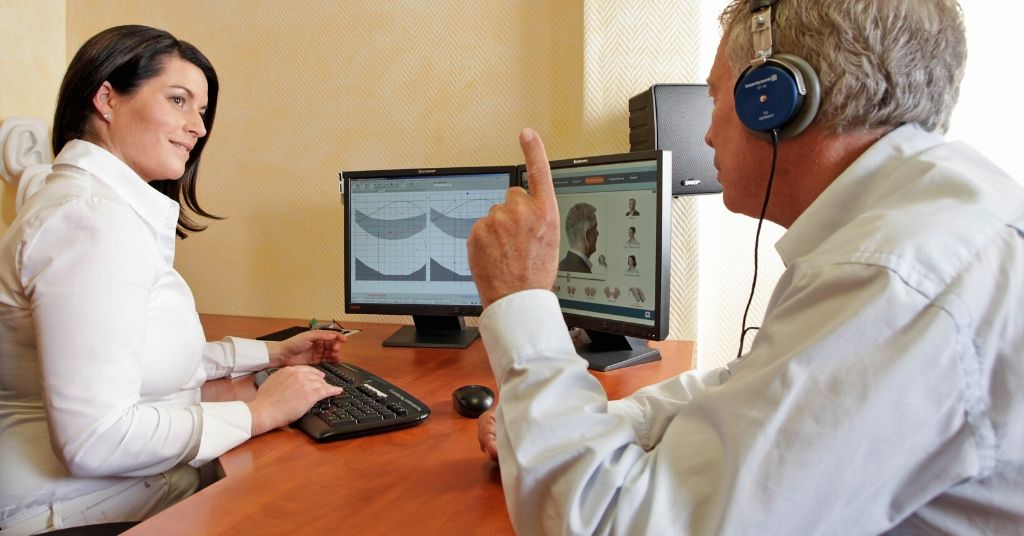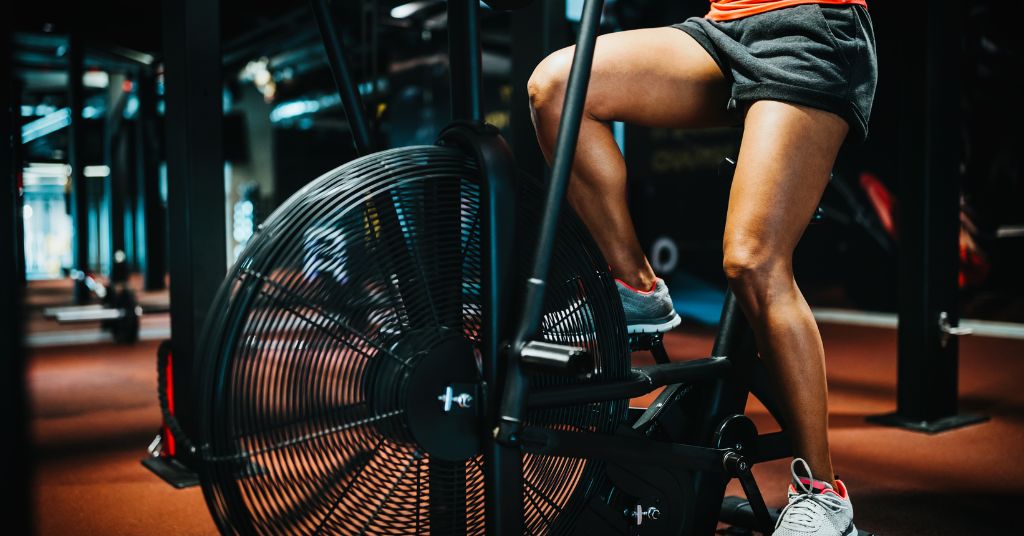
‘A Quiet Place II’: Deaf talent shines despite technical blunders
August 9, 2021
Lou Ferrigno cast in new series ‘The Offer’
August 13, 2021Why we need deaf peer support in our communities

Peer Support Specialists are making a significant impact in mental health recovery, yet there is a limited number of deaf peer support in the U.S.
Where was a Deaf Peer Support Specialist When I Needed One?
If ever someone needed a deaf peer support, it was me. I spent most of my life (around 30 years) not wearing my hearing aids, internalizing most situations I couldn’t hear in, and not knowing about resources for clarity. The situations I experienced built up until I couldn’t take it anymore. When I needed to talk through this and understand better, I reached out everywhere. But I felt like most people did not care enough to really listen or know enough about the topic I was trying to better understand. This led to anger and a breakdown. Underneath that anger was pain, which resulted in tears almost every day for around a year following an exhaustion/depression funk I fell into.
“I spent most of my life not wearing my hearing aids, internalizing most situations… and not knowing about resources for clarity.”
I started to work my way into the Deaf world, but struggled there due to not yet having close friends in the community and not yet being fluent in sign language. I felt disconnected due to my experiences coming from the hearing world. There were these two worlds, but I felt nobody understood mine. I didn’t feel deaf enough for anyone to understand what led me to where I am today or to even validate my experiences. I kept wondering why I couldn’t get over this when other people have more barriers than I do. Past situations kept surfacing. I could not stop obsessing over them. Hearing loss has affected so much of my life; it plays a huge part of who I am and why I do things the way I do. I also felt like I heard too much for anyone to “get it.”
Read more: Why I love being part of a hearing loss community
Steps to Healing
I wished I had more peers that I could talk through my experiences with who really understood my situation. That’s when I started writing for HearingLikeMe.com. Writing for Hearing Like Me was therapeutic because it was the first time I felt like I wasn’t alone in my experiences and that people actually cared about what I had to say.
Read more: How Deafie blogger became writer with hearing loss
Around this time, I also started to learn about professional Peer Support Services. I immediately got connected with a peer in my city, as I was hoping to have more of a support network in my local community. She knew very little about hearing loss, even though that was my main request. While she was nice, listened to me, and did the best she could with what she knew, we had a disconnect on the issues I needed to talk through.
What is a Peer Support Specialist?
A peer support is a person with lived experience of a mental health challenge that supports others who are working through similar challenges. Peer support professionals assist by being there to listen to the person and chat through their concerns. When a person can chat through their mental health challenges with others that “get it,” they are more likely to heal. They also tend to be more able and willing to contribute to society.
Peer supports are making a significant impact in recovery. I believe this is a step in the right direction towards addressing mental health crises.
Current Services for Deaf and Hard of Hearing People
I became fascinated with the idea of peer supports for deaf and hard of hearing individuals. I started searching to see if this service even existed. I found a program in Minnesota and immediately reached out to learn more. What I learned is that this is an unmet need. There are a limited number of deaf and hard of hearing Peer Support Specialists in the U.S. The community would benefit from expanding this number.
“There is a need for culturally affirmative peer support and recovery-oriented services in the Deaf community,” John Gournaris wrote in the Journal of the American Deafness and Rehabilitation Association.
“There is a need for culturally affirmative peer support and recovery-oriented services in the Deaf community.”
What I Wish I Had in a Peer Support
A place to share hearing loss stories
I had 30 years of suppressed stories. I allowed not hearing in situations to build and build until I couldn’t take it anymore. When I hit my breaking point, I didn’t know where to find others like me. I needed to talk through these stories.
A local recovery community who “got it”
I felt alone in what I was going through. I needed friends in my area who understood, but building friendships takes time and hard of hearing people seemed hard to find. Over time, I met some hard of hearing people, but they weren’t struggling with anxiety and depression at the time. I needed a recovery community, but services for this didn’t seem to exist for deaf and hard of hearing people.
Better understanding of how hearing loss works
All I knew is that sometimes I heard things and sometimes I didn’t. I couldn’t explain the different frequencies or my decibel range. I didn’t understand that each setting was different due to distance, background sound, space, etc.
How to be a better self-advocate
It was important for me to learn how to respond when something wasn’t clear. Do I ask the person to speak up, do I sign to the person I cannot hear, or do I pull out a pad of paper? What about in group situations? Do I stop the whole group to tell everyone I’m not getting clarity?
Ability to talk through the use of accommodations
I never knew about accommodations growing up. But even after I did learn about them, I struggled to feel deaf enough to be allowed to use them. When you can kind of hear and know how expensive it is for interpreters, you start to feel guilty even asking for them.
Peers that know sign language
I couldn’t hear my peer at the coffee shop due to too much background noise. I needed peers that could sign. While I can jump between worlds, there are times where I cannot. This makes me feel a need/wish to be connected to others who know ASL.
Ability to chat with someone about new sounds
After not wearing my hearing aids for most of my life, sounds were intense. There were many things I was not understanding about sound as I believe the way my brain interpreted sound changed during the time I was wearing my hearing aids more. I was able to adjust and am happy with the sound of my Phonak hearing aids today. But it would have been nice to chat through this transition process with someone.
Learn appropriate responses in Deaf spaces
There were many situations that I encountered when I started interacting with Deaf people where I was confused about how to respond. One example: How do I respond if there is both a Deaf person that signs and a hearing person that doesn’t in one room? I wanted to be considerate of the Deaf person in the room as I understood what it was like to be in a situation and be left out. I also didn’t know what to do if someone started talking to me.
To understand my role as a between-worlder
I believe hard of hearing people need ASL too and therefore looked up to the Deaf community. My experiences came from the hearing world. I wanted to be an advocate for those who went through similar challenges as me growing up. I was also interested in being more active in the Deaf world, as I value the bilingual approach for hard of hearing individuals. I felt like both worlds were a part of me, but was confused on what to do with this.
Read more: Finding community in the Deaf/deaf world
Challenges
There are several barriers to deaf peer support in our communities.
Training
Current Peer Support trainings throughout the U.S. do not accommodate for nor discuss deaf or hard of hearing challenges.
“The available training curricula are not designed to accommodate the unique training needs of peers who are deaf and whose preferred language is ASL, nor are they able capture the unique lived experiences of this community,” Gournaris says in his journal article. “There are only a handful of deaf individuals who have undergone peer support services training despite the increased attention to peer support services at the national level.”
Funding
“Funding is challenging – establishing a deaf peer support program can be a challenge for some organizations,” Gournaris says. “It’s important to actively seek grants through federal programs, the state, counties and private foundations. Attempt to utilize Medicaid reimbursement when appropriate, but do not plan to rely on this as a primary source of revenue.”
Appropriate Skills
“A deaf peer as a CPSS (Certified Peer Support Specialist) should not be hired solely based on hearing loss,” Gournaris says. “The organization must focus on qualifications and excellent interpersonal skills.”
Breaking Down Stigmas Around Mental Health in Our Deaf Communities
I have been able to find Deaf and hard of hearing connections due to my determination to find others. I can now consider them peers. But what if we could have professional Peer Support Specialists in each of our communities? They could support individuals who don’t have a support network and/or who are isolated in their communities.
Neither hearing loss nor deafness is a mental health challenge within itself. However, because of the barriers one must overcome, mental health challenges can arise. There are also individuals within our communities that have mental health challenges in general. They could benefit from peer supports and literally just need accessibility to these services like the rest of the population. For deaf and hard of hearing individuals, having clear communication and people that are understanding of culture/communication barriers is important.
Peer Supports can help bring more awareness of mental health issues in our community. They can also be agents of positive change. This is how we break the stigma attached to mental health.



